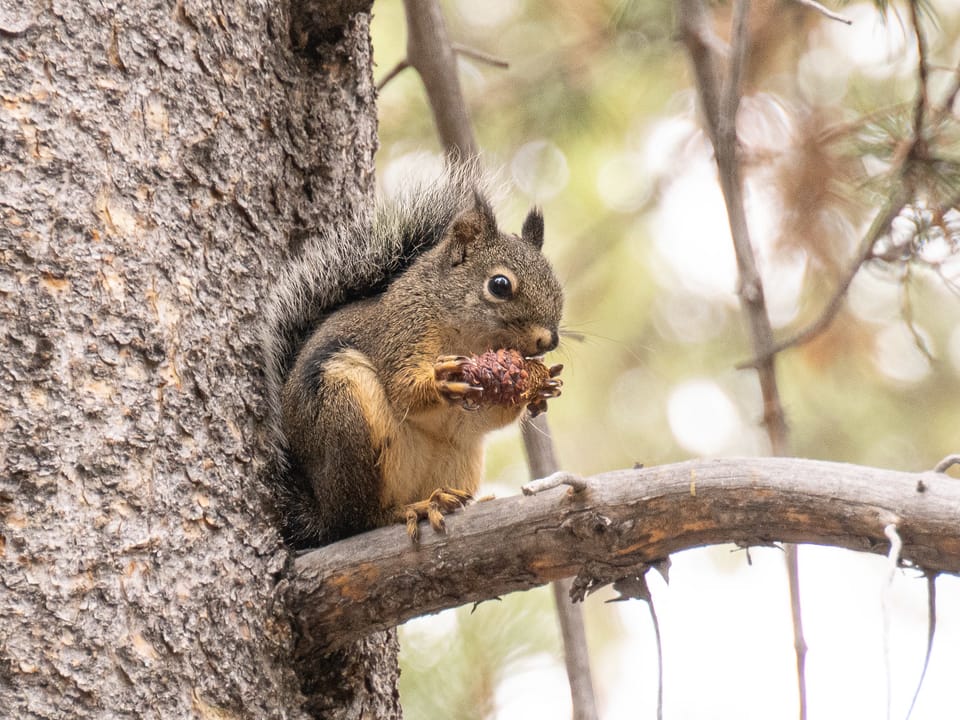EcoWest News, December 13, 2022

Welcome to EcoWest News, a weekly round-up of news and resources that you can put to use in addressing environmental issues and protecting the wild in your community.
Across the West
BC has promised to protect 30% of the province by 2030 [The Narwhal]. Its decisions on 4 projects with major environmental implications will show how serious the government is about protecting its natural resources [The Narwhal].
The North Saskatchewan River Valley is Edmonton’s greatest natural resource, but there is a lack of direction and enforceable rules to protect it. [Urban Affairs]
Researchers at the University of Alberta are mapping the health impacts of climate change across the province. [University of Alberta]
8.3 million cars enter Banff National Park every year. Is the solution to establish alternate transit systems (gondola, shuttles) or to limit the number of people able to access sensitive natural areas? [CBC]
Connectivity
Many bats exhibit sex differences in migration, foraging, and roost selection and have different landscape requirements that must be considered in taking a landscape-level approach to connectivity. [Conservation Corridor]
Alberta Bats noted how important this was, saying on Twitter, “We tend to get hung up on maternity roosts but habitat for males & then late season juveniles & post-lactating females is also important (and DIFFERENT)! Systems are complex. But we must be ready to prepare for this complexity.” [Alberta Bats]
A study of North American wildlife overpasses indicates that wide overpasses “present ecologically sound and cost-effective solutions for decreasing the barrier of roadways, especially when targeting width-sensitive species and large assemblages of mammals.” [PeerJ]
Trees
“A tree really has a second life after it’s been killed, particularly with fire-killed trees, which decay far slower than if a tree succumbs to disease or insects … The snags and the downed logs are all part of the rebirthing of a forest.” [The Revelator]
Street trees help address climate change, but they are also affected by it and require attentive maintenance. “Everybody assumes the street trees are going to be there forever … unfortunately they won’t if we’re not careful.” [The Tyee]
DIY
iNaturalist “is the place where I feel like I interact with strangers and work towards the common good.” [New York Times]
Recycle aluminum cans and save energy as recycled aluminum can be used over and over again and only requires 5% of the electricity required initially to refine aluminum. [Inside Climate News]
A study to determine Europe’s most eco-conscious shoppers provides a useful checklist of points to be taken into consideration, from the number of flea markets to the levels of household waste. How would you rate your community? [EuroNews]
Anti-EV propaganda is alarming. No matter how you measure it, EVs release less GHG emissions than a gas-fueled car. [Motor Trend] But replacing gas cars one-for-one with electric cars isn’t the answer either. We need to make walking, biking, and public transit more convenient so residents don’t have to drive. [CBC]
Nature’s Wonders
Clouds may look light and fluffy, but they’re surprisingly heavy. Imagine 100 elephants dangling over your head. [Live Science]
This is the last issue of EcoWest News for 2022. We’ll be in holiday mode for the next three weeks with interesting and unexpected items for you to enjoy on Tuesdays.
Photo credit: https://www.flickr.com/photos/apmckinlay/52555042871
EcoFriendly West informs and encourages initiatives that support Western Canada’s natural environment through its online publication and the Nature Companion website/app. Like us on Facebook, follow us on Twitter, or subscribe by email.

Member discussion